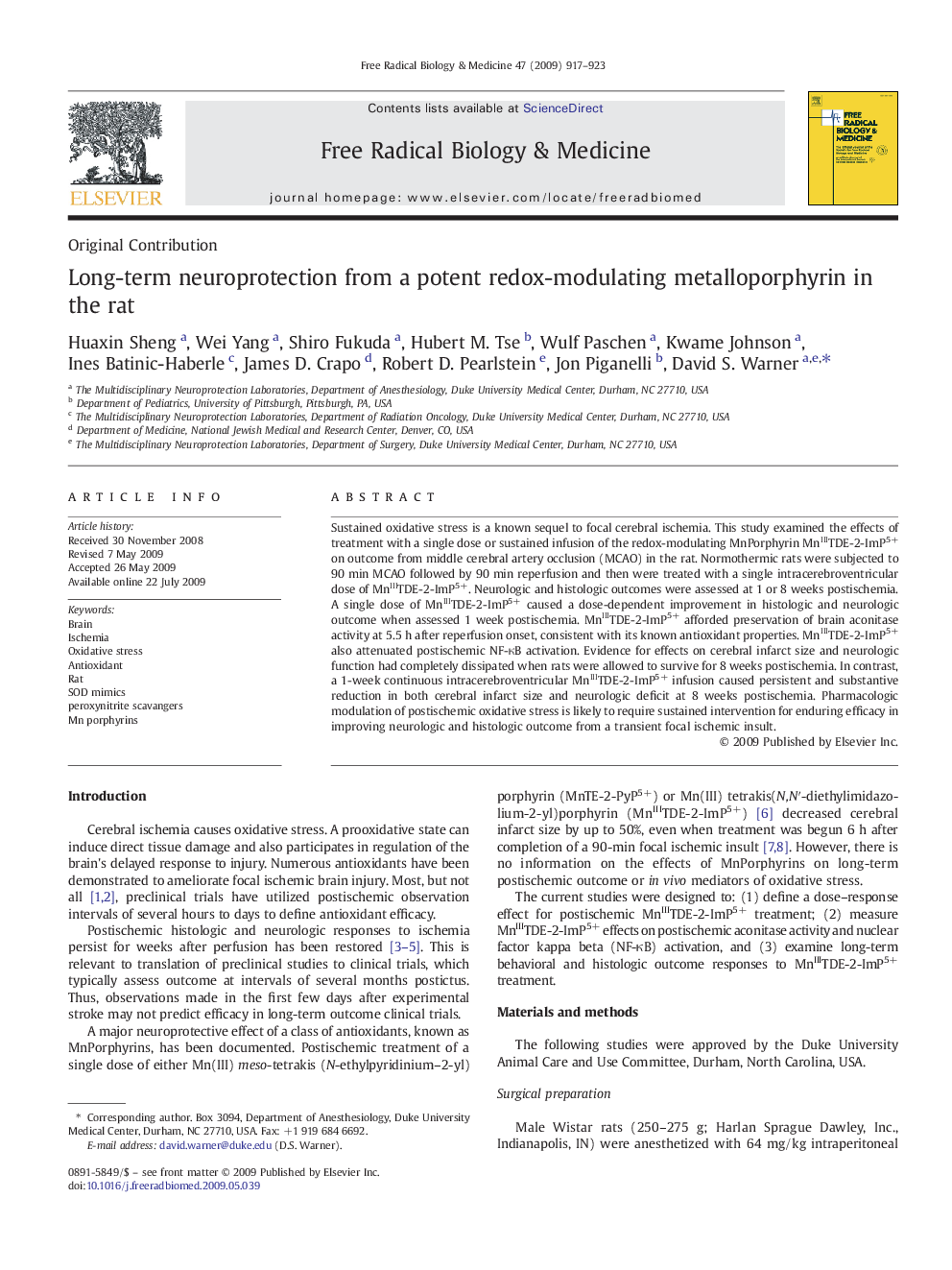| Article ID | Journal | Published Year | Pages | File Type |
|---|---|---|---|---|
| 1909780 | Free Radical Biology and Medicine | 2009 | 7 Pages |
Sustained oxidative stress is a known sequel to focal cerebral ischemia. This study examined the effects of treatment with a single dose or sustained infusion of the redox-modulating MnPorphyrin MnIIITDE-2-ImP5+ on outcome from middle cerebral artery occlusion (MCAO) in the rat. Normothermic rats were subjected to 90 min MCAO followed by 90 min reperfusion and then were treated with a single intracerebroventricular dose of MnIIITDE-2-ImP5+. Neurologic and histologic outcomes were assessed at 1 or 8 weeks postischemia. A single dose of MnIIITDE-2-ImP5+ caused a dose-dependent improvement in histologic and neurologic outcome when assessed 1 week postischemia. MnIIITDE-2-ImP5+ afforded preservation of brain aconitase activity at 5.5 h after reperfusion onset, consistent with its known antioxidant properties. MnIIITDE-2-ImP5+ also attenuated postischemic NF-κB activation. Evidence for effects on cerebral infarct size and neurologic function had completely dissipated when rats were allowed to survive for 8 weeks postischemia. In contrast, a 1-week continuous intracerebroventricular MnIIITDE-2-ImP5+ infusion caused persistent and substantive reduction in both cerebral infarct size and neurologic deficit at 8 weeks postischemia. Pharmacologic modulation of postischemic oxidative stress is likely to require sustained intervention for enduring efficacy in improving neurologic and histologic outcome from a transient focal ischemic insult.
